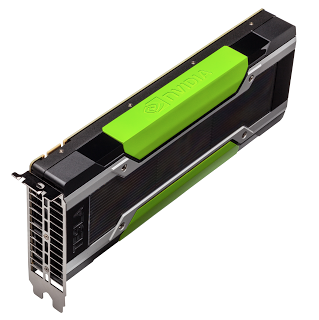

Google has made access to Nvidia graphics cards available on its Compute Engine and Cloud Machine Learning platforms, enabling users to access additional computational horsepower for training smart software and artificial intelligence (AI).
Users of the Google Cloud Platform (GCP) will be able to tap into the parallel processing capabilities of Nvidia’s Tesla K80 graphics processing units (GPUs) by spinning up virtual machines in the us-east1, asia-east1 and europe-west1 regions of the GCP.
Offering such a service helps avoid the need for companies working on software and systems that use machine and deep learning algorithms to have GPU clusters in their own data centres.
“As always, you only pay for what you use. This frees you up to spin up a large cluster of GPU machines for rapid deep learning and machine learning training with zero capital investment,” said Google’s product manager John Barrus.
Traditional central processing units (CPUs) can do this but there lack the through put of GPUs and their parallel processing that enables masses of data to be hauled through a deep learning neural network. If a CPU provides a single pipe for complex processing, GPUs offer a array of piles for higher data throughput but less complex processing.
With each K80 sporting 2,496 stream processors and 12GB of GDDR5 memory, the graphics cards are more than suitable at supporting the training of deep learning algorithms which can then be used to create smart software and at the moment basic AI, as seem with the Google Assistant found in the search company’s Pixel smartphones.
The instances being supported by the GCP allow for the use of deep learning frameworks such as TensorFlow, Theano, Torch, MXNet, Caffe, and Nvidia’s own CUDA software for building GPU-accelerated applications.
Google is not alone in providing cloud-powered deep learning systems, with Amazon Web Services offering its own machine-learning-as-a-service suite, hot on the heels of Microsoft’s Azure powered machine learning platform.
Put your knowledge of artificial intelligence (AI) to the test. Try our quiz!
OpenAI chief operating officer Brad Lightcap to oversee international expansion as company consolidates lead in…
Chinese researchers publish details on device that could wreak havoc on undersea communications cables in…
Former Intel chief Gelsinger expands role at Gloo, becoming executive chairman and head of technology…
MEPs add to Commission pressure for second EU Chips Act amidst industry calls for renewed…
Smartphone maker Xiaomi reportedly raises about $5.5bn in Hong Kong share sale as it invests…
BYD's Qin L EV sedan starts at about half the price of Tesla's Model 3,…